The origin of eSports in Russia. Old heroes in the new organization Apei Gaming (Part 3)
Before starting the article, I want to notify the reader about the fact that on Habré we have already published the first 2 parts of the blog about the creation of our cyber sports organization. I strongly recommend that you read them before you start reading this article.
Creating a cyber sports organization.
Apei Gaming - to be a project! (Part 2)
One of the questions that excites the minds of today's youth in view of the events of recent years - how can one become a cyber sportsman? Such a rush due to the presence of a huge number of international tournaments with fabulous prize pools. To answer this question and understand the problematics of this topic, it is worth going back to basics, at the time when cybersport was in its infancy and try to trace the pattern of actions of people who have achieved something in this area, gradually coming to an understanding of whether all some kind of "secret formula" or the whole will of chance.
')
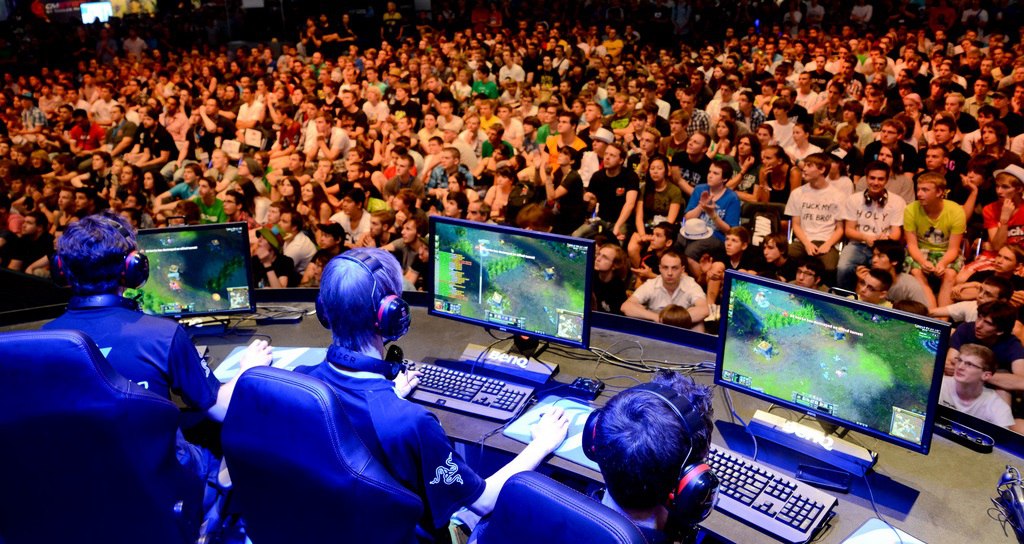
Cybersport owes its appearance to CPL (Cyberathlete Professional League), a professional league in computer sports, a company that in 1997 essentially marked the emergence of such a thing as “computer sports.” At that time I was only 9 years old, I loved computer games, and The Sega prefixes (release 1988), Dendi (release 1992) and Sony Playstation 1 (release 1994) that were popular at that time were a source of great excitement, and their presence guaranteed popularity in school.

It can be said that it was the golden era of consoles, as the technology, which is fairly simple by today's standards, caused a storm of emotions and a desire to spend all “free” and not only time behind the “prefix”. I remember how I collected “pocket money”, which my parents gave me for travel and lunches, and I was looking forward to the end of my lessons, so that I could plunge into an amazing virtual world in a computer club for a few hours. I didn’t have my own “prefix”, and at that time the presence of it was considered a luxury, since the price of the simplest console was equal to a two-month average salary, and the price of one game could go up to 1/10 of its part.
Naturally, in 1997, in view of age, a very weak Internet and the banal absence of a desktop computer, I could not imagine that I was on the verge of the birth of a new movement, a certain culture, which in 20 years would beat with its ratings and prize funds already established and known Worldwide sports such as rugby or table tennis, while having breathtaking growth potential and positive global trends.
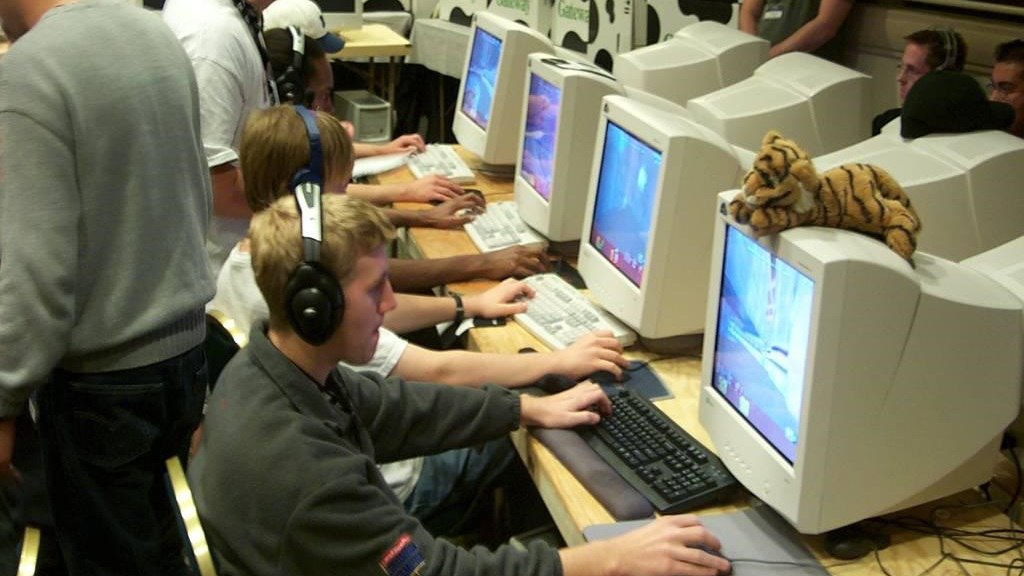
I unfortunately cannot tell in all colors about the emergence of cybersport in Russia, because at that time I did not have the opportunity to be in the “thick” of events, but we managed to gather some “insider” information from a recently joined member of our organization and simply positive girls Catherine "Sava".
- Hello. Please introduce yourself.
Sava :)
- As far as I know, in the past years you took an active part in the Russian cybersport life. Tell me more about this.
It all started, of course, with the local Perm championships (where I come from), where I played with friends in small tournaments that collected an average of 6-8 teams (not just taking top positions), but I only became part of “Russian cybersport life” after receiving a very noticeable at that time “position” of the moderator Russia High LvL Room inside the garena gaming platform (ex GGC). Since I myself regularly played in my rooms, I gradually met many cool people, including those playing at the pro level, and at the same time, I pulled up an individual skill.
At some point, the guys started calling me to play with them various online tournaments, then they called me to Asus (I participated in about 5-6 Asusi) and several other lan-tournaments (like Querty Lan Cup).

- Can you describe in a few words how the training process went?
Most often, we agreed on a specific time in the evenings and weekends, convenient for everyone to play with five of us, sometimes with a trainer / analyst, sometimes self-organized. If someone did not come to the training session for one reason or another, then they were looking for a “side” replacement — they took the coach into the game or friends, so as not to waste time.
- Where did you find the people who played and trained with you?
Most often, these were acquaintances and friends, friends of friends, rarely someone completely “outside” got into the internal command processes.
- How much time per day did you spend on the game?
At that time I worked 2 through 2, so every 2 days I could play all day from morning to evening, if there were some important things missing, well, plus after work, coming at 10-11 pm, I could afford to play for hours 3-4 free.
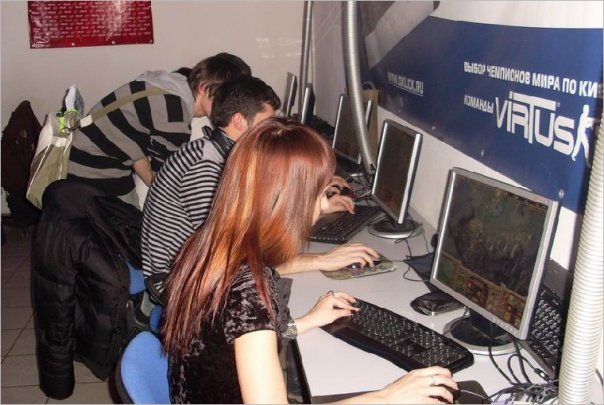
- Did you have a salary and sponsorship, or was everything based mainly on enthusiasm?
Although we performed under the tags of various organizations and we had sponsors, there were never s / n, but there were trainers and analysts who helped us a lot. And everyone in the team always had enough inspiration and involvement without additional bonuses.
- Now you have decided to join the ranks of Apei Gaming. What made you do this?
I liked the post of Ivan on Habré, it seemed to me that this is a cool idea and an interesting project, I wanted to be part of it. I have been playing MoBa games for 10 years now, I constantly follow e-sports and news related to it, and I want it to develop and be open to people with glowing eyes and talent.
- Who are you in the organization?
For the first time, I was asked to be a member of the LoL team (I’ve already got the first one, I’ll be in the second one) to understand from the inside what is happening here, what people are taking part in and where this project is moving at all. It seemed to me that this is the best way to "join."
- Thank you for agreeing to answer a few questions. Good luck with your gaming activities.
And thank you.
The full version of the interview can be found in our VC group .
If to result all the information that we managed to collect, at the time of inception, cybersport in Russia was more amateur than real “sport” in the usual sense of the word. It was all held on the enthusiasm of the players and a small support of sponsors, from which the last juices were squeezed out, since it was incredibly difficult to monetize this trend in those times.
If the salaries of cybersportsmen were, they only allowed them not to die of hunger. There was no need to talk about any real earnings. In one of the last years, when our team acted in the CS 1.6 discipline in the Czech Republic, we were joined by a player from the rather well known Kazakh team k23 at that time. The average salary at that time in their organization was about $ 300, which was quite a good indicator for the CIS teams, considering that 95% of the teams did not have this and had to hope only for quotas with the paid road and accommodation and for the prize money from the won tournaments .
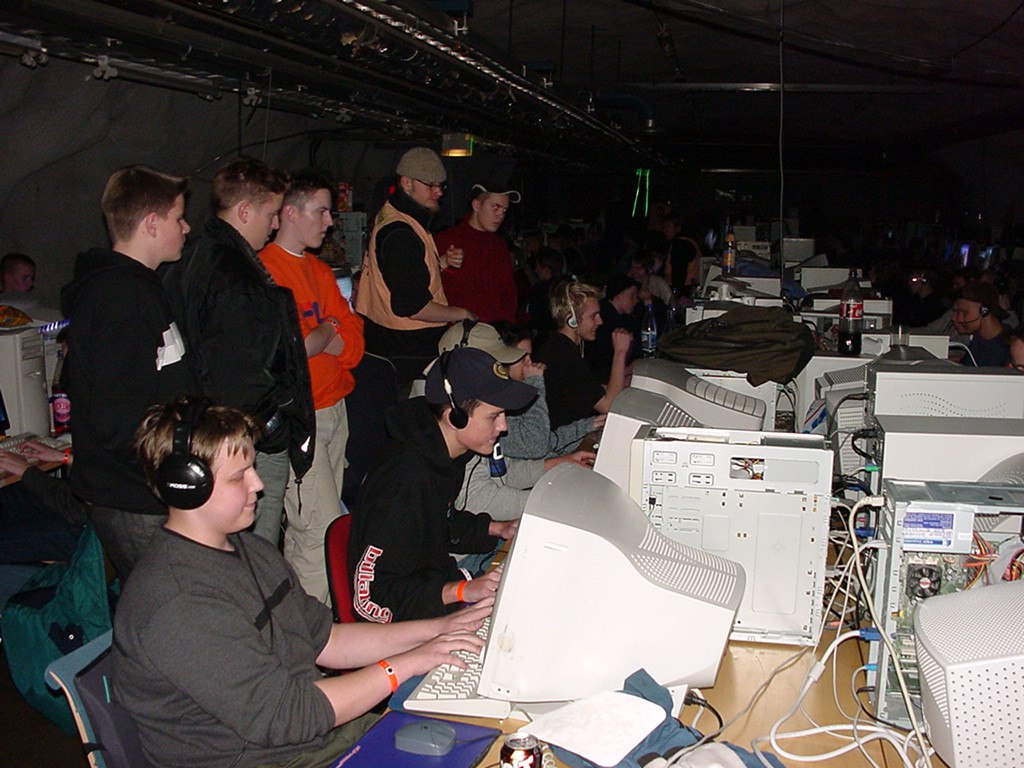
Selection of players in the 00's was also more likely by chance than by some verified and statistical plan. It was extremely difficult to find new players. The Internet and ping often did not allow really talented players to go to the pro level, so teams often gathered from friends, acquaintances or people who had already managed to “light up” at any e-sports events. In view of this, both the competition and the level of the overall game was much lower than now.
But what can be argued for sure - without experience, hard work and unselfish returns that in those days that today it is impossible to achieve a high level. A lot of applications come to our organization. And we try to pay attention to each of them, and give an opportunity to anyone who wants to try himself as a cyber sportsman. One of the main problems of new applicants - big words, not supported by evidence:
I do not deny that perhaps one of these people is really good, but it is not possible to understand this from such applications. It would seem a trifle? But out of such trifles, our whole life is formed, and it is possible that someone of them thoughtlessly wrote a statement, killed the future cybersman in himself, and refused to get invaluable experience.
These are just a few excerpts from the hundreds of applications we received. And I just do not have any moral right to hang these pseudo-players on the management and trainers of the organization, who are already working for wear, investing in the project "all my soul." If you want to become a cyber athlete at least at the level of your city, region or region, you need to treat this activity as a sport. I think you do not know any of the champions of Russia, who would have won their title, while doing and practicing "offhand" - a couple of times a month.
The second reason is the applicant’s ambiguity in what he wants from the organization and by whom he sees himself within its framework. As an example:
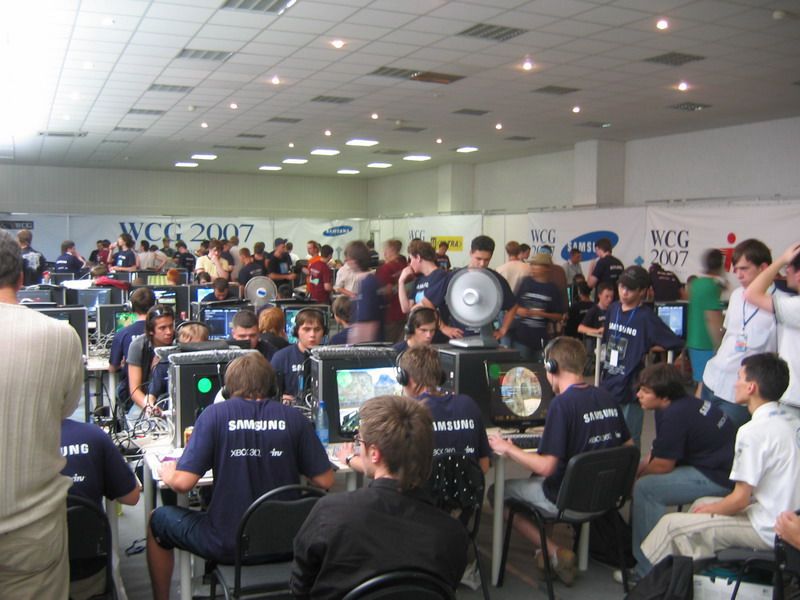
Then several conclusions immediately come to mind: either a person is a child prodigy, because he is going to become a good programmer, and about a player, and in the evenings he will analyze the games of teams, or he doesn’t quite imagine what e-sports is and how long it takes. It is impossible to be the best in everything, so if you really want to achieve something in life, then you should focus on one direction and devote it to your whole life.
Summing up this article, we can say that everyone can become a professional cybersportsman, but this requires 5% talent, 10% luck, 35% ability to think and analyze, and 50% hard work and serious attitude. Here it is - a secret formula. Record, memorize and enjoy.
In the next part of the blog I will talk about the media component of our organization, plans and reflections on this matter.
Creating a cyber sports organization.
Apei Gaming - to be a project! (Part 2)
One of the questions that excites the minds of today's youth in view of the events of recent years - how can one become a cyber sportsman? Such a rush due to the presence of a huge number of international tournaments with fabulous prize pools. To answer this question and understand the problematics of this topic, it is worth going back to basics, at the time when cybersport was in its infancy and try to trace the pattern of actions of people who have achieved something in this area, gradually coming to an understanding of whether all some kind of "secret formula" or the whole will of chance.
')

Cybersport owes its appearance to CPL (Cyberathlete Professional League), a professional league in computer sports, a company that in 1997 essentially marked the emergence of such a thing as “computer sports.” At that time I was only 9 years old, I loved computer games, and The Sega prefixes (release 1988), Dendi (release 1992) and Sony Playstation 1 (release 1994) that were popular at that time were a source of great excitement, and their presence guaranteed popularity in school.

It can be said that it was the golden era of consoles, as the technology, which is fairly simple by today's standards, caused a storm of emotions and a desire to spend all “free” and not only time behind the “prefix”. I remember how I collected “pocket money”, which my parents gave me for travel and lunches, and I was looking forward to the end of my lessons, so that I could plunge into an amazing virtual world in a computer club for a few hours. I didn’t have my own “prefix”, and at that time the presence of it was considered a luxury, since the price of the simplest console was equal to a two-month average salary, and the price of one game could go up to 1/10 of its part.
Naturally, in 1997, in view of age, a very weak Internet and the banal absence of a desktop computer, I could not imagine that I was on the verge of the birth of a new movement, a certain culture, which in 20 years would beat with its ratings and prize funds already established and known Worldwide sports such as rugby or table tennis, while having breathtaking growth potential and positive global trends.

I unfortunately cannot tell in all colors about the emergence of cybersport in Russia, because at that time I did not have the opportunity to be in the “thick” of events, but we managed to gather some “insider” information from a recently joined member of our organization and simply positive girls Catherine "Sava".
- Hello. Please introduce yourself.
Sava :)
- As far as I know, in the past years you took an active part in the Russian cybersport life. Tell me more about this.
It all started, of course, with the local Perm championships (where I come from), where I played with friends in small tournaments that collected an average of 6-8 teams (not just taking top positions), but I only became part of “Russian cybersport life” after receiving a very noticeable at that time “position” of the moderator Russia High LvL Room inside the garena gaming platform (ex GGC). Since I myself regularly played in my rooms, I gradually met many cool people, including those playing at the pro level, and at the same time, I pulled up an individual skill.
At some point, the guys started calling me to play with them various online tournaments, then they called me to Asus (I participated in about 5-6 Asusi) and several other lan-tournaments (like Querty Lan Cup).

- Can you describe in a few words how the training process went?
Most often, we agreed on a specific time in the evenings and weekends, convenient for everyone to play with five of us, sometimes with a trainer / analyst, sometimes self-organized. If someone did not come to the training session for one reason or another, then they were looking for a “side” replacement — they took the coach into the game or friends, so as not to waste time.
- Where did you find the people who played and trained with you?
Most often, these were acquaintances and friends, friends of friends, rarely someone completely “outside” got into the internal command processes.
- How much time per day did you spend on the game?
At that time I worked 2 through 2, so every 2 days I could play all day from morning to evening, if there were some important things missing, well, plus after work, coming at 10-11 pm, I could afford to play for hours 3-4 free.

- Did you have a salary and sponsorship, or was everything based mainly on enthusiasm?
Although we performed under the tags of various organizations and we had sponsors, there were never s / n, but there were trainers and analysts who helped us a lot. And everyone in the team always had enough inspiration and involvement without additional bonuses.
- Now you have decided to join the ranks of Apei Gaming. What made you do this?
I liked the post of Ivan on Habré, it seemed to me that this is a cool idea and an interesting project, I wanted to be part of it. I have been playing MoBa games for 10 years now, I constantly follow e-sports and news related to it, and I want it to develop and be open to people with glowing eyes and talent.
- Who are you in the organization?
For the first time, I was asked to be a member of the LoL team (I’ve already got the first one, I’ll be in the second one) to understand from the inside what is happening here, what people are taking part in and where this project is moving at all. It seemed to me that this is the best way to "join."
- Thank you for agreeing to answer a few questions. Good luck with your gaming activities.
And thank you.
The full version of the interview can be found in our VC group .
If to result all the information that we managed to collect, at the time of inception, cybersport in Russia was more amateur than real “sport” in the usual sense of the word. It was all held on the enthusiasm of the players and a small support of sponsors, from which the last juices were squeezed out, since it was incredibly difficult to monetize this trend in those times.
If the salaries of cybersportsmen were, they only allowed them not to die of hunger. There was no need to talk about any real earnings. In one of the last years, when our team acted in the CS 1.6 discipline in the Czech Republic, we were joined by a player from the rather well known Kazakh team k23 at that time. The average salary at that time in their organization was about $ 300, which was quite a good indicator for the CIS teams, considering that 95% of the teams did not have this and had to hope only for quotas with the paid road and accommodation and for the prize money from the won tournaments .

Selection of players in the 00's was also more likely by chance than by some verified and statistical plan. It was extremely difficult to find new players. The Internet and ping often did not allow really talented players to go to the pro level, so teams often gathered from friends, acquaintances or people who had already managed to “light up” at any e-sports events. In view of this, both the competition and the level of the overall game was much lower than now.
But what can be argued for sure - without experience, hard work and unselfish returns that in those days that today it is impossible to achieve a high level. A lot of applications come to our organization. And we try to pay attention to each of them, and give an opportunity to anyone who wants to try himself as a cyber sportsman. One of the main problems of new applicants - big words, not supported by evidence:
"I am the best!"
“Good player”
“Purposefulness. A responsibility. Diligence
"I bring good luck as a talisman"
"Entry Level Player (LOL)."
I do not deny that perhaps one of these people is really good, but it is not possible to understand this from such applications. It would seem a trifle? But out of such trifles, our whole life is formed, and it is possible that someone of them thoughtlessly wrote a statement, killed the future cybersman in himself, and refused to get invaluable experience.
These are just a few excerpts from the hundreds of applications we received. And I just do not have any moral right to hang these pseudo-players on the management and trainers of the organization, who are already working for wear, investing in the project "all my soul." If you want to become a cyber athlete at least at the level of your city, region or region, you need to treat this activity as a sport. I think you do not know any of the champions of Russia, who would have won their title, while doing and practicing "offhand" - a couple of times a month.
The second reason is the applicant’s ambiguity in what he wants from the organization and by whom he sees himself within its framework. As an example:
“I am interested in eSports. I have the opportunity to do administration. I am a player Dota 2 ";
"Player, analyst, coder, system administrator";
"I can act as a player or as an employee of the IT department."

Then several conclusions immediately come to mind: either a person is a child prodigy, because he is going to become a good programmer, and about a player, and in the evenings he will analyze the games of teams, or he doesn’t quite imagine what e-sports is and how long it takes. It is impossible to be the best in everything, so if you really want to achieve something in life, then you should focus on one direction and devote it to your whole life.
Summing up this article, we can say that everyone can become a professional cybersportsman, but this requires 5% talent, 10% luck, 35% ability to think and analyze, and 50% hard work and serious attitude. Here it is - a secret formula. Record, memorize and enjoy.
In the next part of the blog I will talk about the media component of our organization, plans and reflections on this matter.
Source: https://habr.com/ru/post/395515/
All Articles